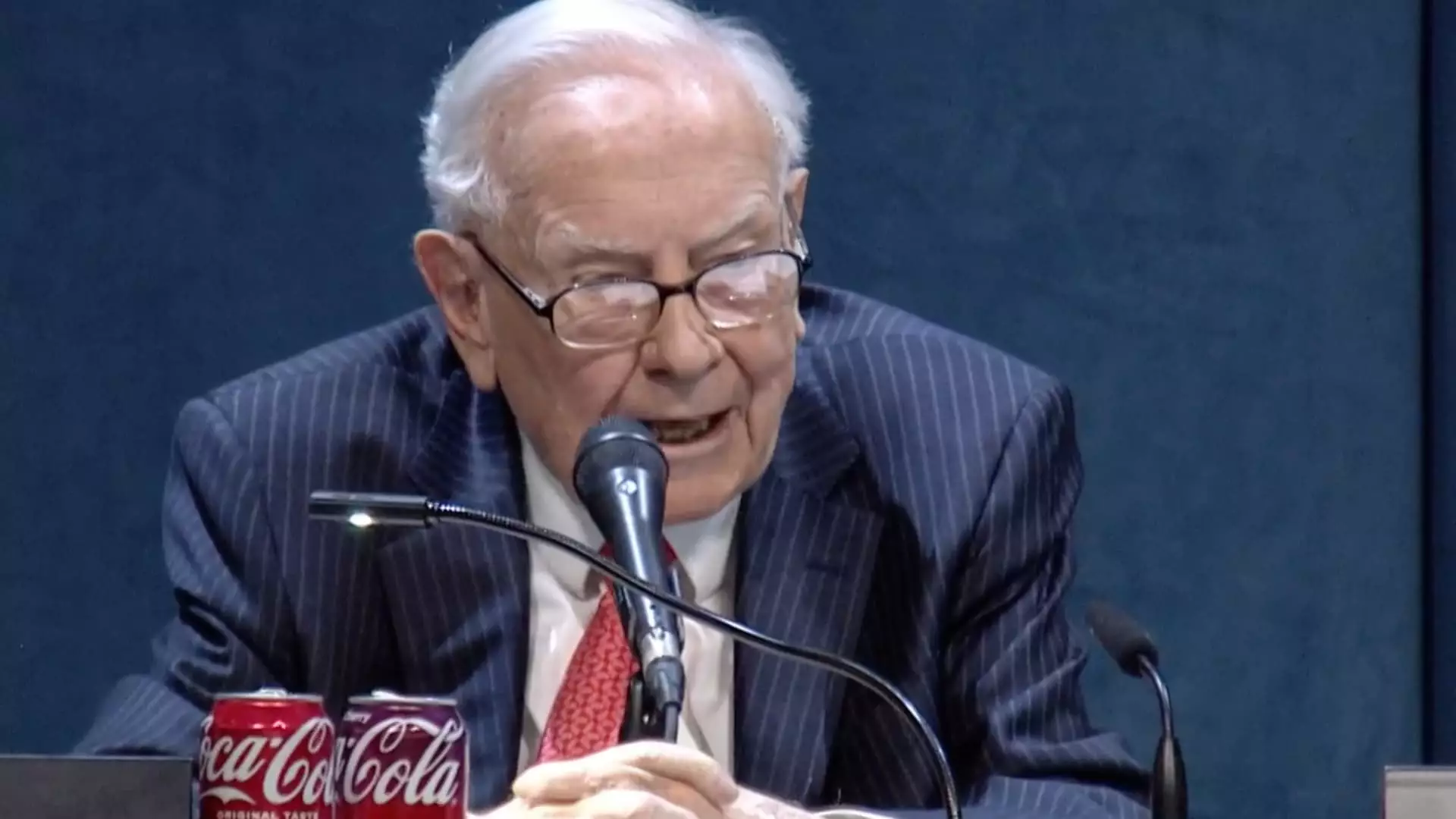In a recent address that captivated the attention of thousands gathered in Omaha, Nebraska, Warren Buffett, the venerable investor known for his unyielding wisdom and insight, took a decisive stance against the increasingly aggressive trade policies that have permeated global markets. While refraining from directly naming President Donald Trump, Buffett criticized the imposition of punitive tariffs, declaring it a “big mistake” that could jeopardize economic relations and the long-term prosperity of the United States as a global power.
Buffett’s perspective on trade is not merely academic; it is rooted in his deep understanding of economic interdependence. He articulated a philosophy that elevates cooperation over conflict, arguing that “trade should not be a weapon.” This powerful assertion encapsulates a belief in collaborative growth as a path to shared prosperity. According to Buffett, a thriving global economy benefits all players, asserting that increased wealth elsewhere does not come at the expense of the United States but rather contributes to a safer, more prosperous future for American families. His assertion reveals a profound understanding that economic dynamics operate on a global scale, where isolationist policies may only precipitate further turmoil.
The Dangers of Protectionist Policies
Buffett’s concerns extend beyond mere economic theory; he cautioned that tariffs can equate to an “act of war,” igniting tensions that could lead to detrimental outcomes for both economies involved. The ramifications of such policies are significant, as they can sow seeds of discord in an already fragile international landscape. The recent volatility on Wall Street, exacerbated by the administration’s harsh trade measures—especially against China—is a testament to these fears. Tariffs that surged to as high as 145% have not only destabilized markets but have also spurred retaliatory measures from other nations. Buffett aptly noted that such protectionist measures could ultimately backfire, shifting the competitive equilibrium in a way that harms the very economy such policies are intended to protect.
In an age where multilateral trade agreements and collaborations have become the cornerstones of economic policy, the move towards isolationism presents risks that could undo decades of diplomatic and economic progress. Buffett’s insights serve as a reminder that the interconnectedness of global economies means decisions made within one country can resonate across continents, influencing the welfare of billions.
A Historical Perspective on Economic Leadership
To contextualize his argument, Buffett underscored the unique position of the United States in the global arena. Since its inception as a fledgling nation, the U.S. has ascended to unprecedented heights in industrial and economic capacity. His historical perspective captures the essence of American innovation and resilience. “We have become an incredibly important country, starting from nothing 250 years ago. There’s not been anything like it,” he proclaimed, reinforcing the idea that American strength draws not solely from military power or resource abundance, but from a legacy of economic and cultural influence built through collaboration and trade.
Buffett’s reflection on the current state of the U.S. economy further highlights the immediate challenges posed by recent tariff implementations. Even as he acknowledged the conglomerate nature of Berkshire Hathaway’s diverse investments, he also candidly discussed the uncertainties created by geopolitical tensions. The first-quarter GDP contraction serves as a stark reminder of the fragility of economic stability, prompting Buffett to adopt a more conservative investment strategy, with a notable sell-off of over $134 billion worth of stock in the past year. His actions illustrate a prudent response to an unpredictable macroeconomic environment, resonating with investors keen for reassurance in tumultuous times.
The Path Forward: Embracing Global Markets
Ultimately, Buffett’s message transcends the immediate economic concerns; it is a profound call for embracing globalization. His advocacy for navigating global markets with an open stance challenges the rising tide of nationalism and protectionism that threatens to disrupt the delicate balances of trade and diplomacy. As he aptly pointed out, fostering relationships rather than burning bridges is essential for the enduring success of not just the United States, but for the global economy at large.
The wisdom of Warren Buffett stands as a clarion call for leaders and policymakers: an invitation to reassess the implications of protectionism and to remember that our collective future hinges on cooperative engagement rather than unilateral actions. In today’s interconnected world, it is imperative that we view trade as a pathway to mutual success, not as a battlefield for transactions. Embracing this philosophy could pave the way for more prosperous and secure generations to come.

